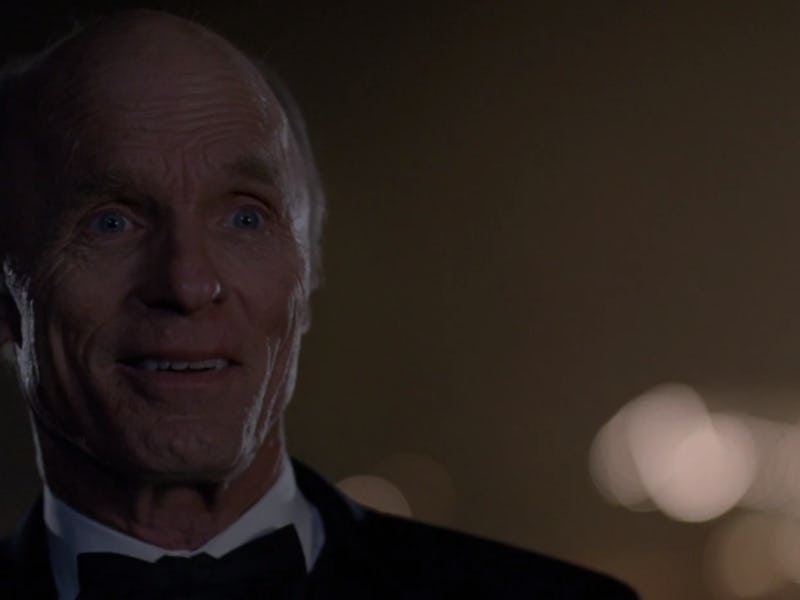Robert Ford Wanted the Man in Black Alive in the 'Westworld' Finale
The MiB didn't get mowed down by the robot rebellion for a reason.

Five episodes after they first squared off in an intimidating battle of wits in “Contrapasso,” the Man in Black and Dr. Robert Ford had a final fond farewell in the season finale in HBO’s Westworld that didn’t require them to sit face-to-face. Their heated conversation in the mid-season episode was confounding for a few reasons beyond the fact that we didn’t know who the Man in Black was and why he was being such a dick inside the park. But in “The Bicameral Mind,” we knew that Ed Harris’s character was William, the park’s majority owner. There could have been another potentially deadlier confab between the two, and yet when facing down a phalanx of pissed off preprogrammed hosts in the finale, all the Man in Black got was a non-lethal bullet shot to the arm. The now dearly departed Ford wanted him alive for good reason: mutual respect.
The “Contrapasso” meeting should now make a lot more sense to those who were wondering why Ford didn’t just use his god-like power over the hosts of the park to disarm and perhaps kill the Man in Black. Two episodes later we found out that Ford doesn’t hesitate to eliminate any humans who stood in the way of his cryptically unfolding new narrative, hence the death of poor Theresa Cullen. So why did Ford let the Man in Black, a guy who literally calls himself the villain of the park, off the hook?
The Man in Black was clearly looking for answers from someone like Ford who had them all but chose not to divulge the bigger agenda until he knew who he was dealing with.
“The world out there, the one you’ll never see, was one of plenty. A fat, soft teat people cling to their entire life. Every need taken care of except one purpose: meaning,” the MiB tells Teddy and Ford at the same time before lambasting the tourists who simply visit the park so they can, as he says, “be a little scared, a little thrilled, enjoy some sweetly affirmative bullshit, and then take a fucking picture and go back home.”
But it’s his next line of dialogue that sealed his fate in Ford’s mind, one that ensured he would be allowed to stay alive (though injured) once Ford unveiled the deadly new narrative. “I think there’s a deeper meaning hiding under all that,” says the Man in Black. “Something the person who created it wanted to express. Something true.”
Ford could have programmed the hosts to kill the Man in Black, but he didn't.
Ford was totally antithetical to the Delos moneymen because the Man in Black’s company that is directly responsible for the nightmare Ford found himself in before the finale. “I told him we’d be fine, that you didn’t understand what you were paying for. It’s not a business venture, not a theme park, but an entire world,” he told Theresa in reference to his original partner Arnold in “Dissonance Theory.”
After their “Contrapasso” conversation, Ford knew that the Man in Black, in his journey through the Maze, both wanted the hosts to be more than just tourist attractions. They both wanted them to be real.
“We must look back and smile at perils past, mustn't we?”
So in “The Bicameral Mind,” Ford enacts his final narrative against Charlotte Hale and the board members who wanted to strip the hosts of their advanced consciousness to keep them in their control. To do so, Ford gives the hosts the consciousness he wanted them to have. He also allows the Man in Black to witness what he always wanted: unrestrained and sentient hosts that peel away the fictional layers of the park. That’s why the Man in Black can’t help but chuckle at the sight of the robot uprising emerging from the nearby forest, and that’s why he is only shot in the shoulder instead of killed outright.
We’ll have to wait for Season 2 to see if he stays alive much longer, but at least he took Ford’s advice. As the always eloquent mastermind behind the park said in a Walter Scott allusion at the conclusion of the “Contrapasso” conversation, “We must look back and smile at perils past, mustn’t we?”